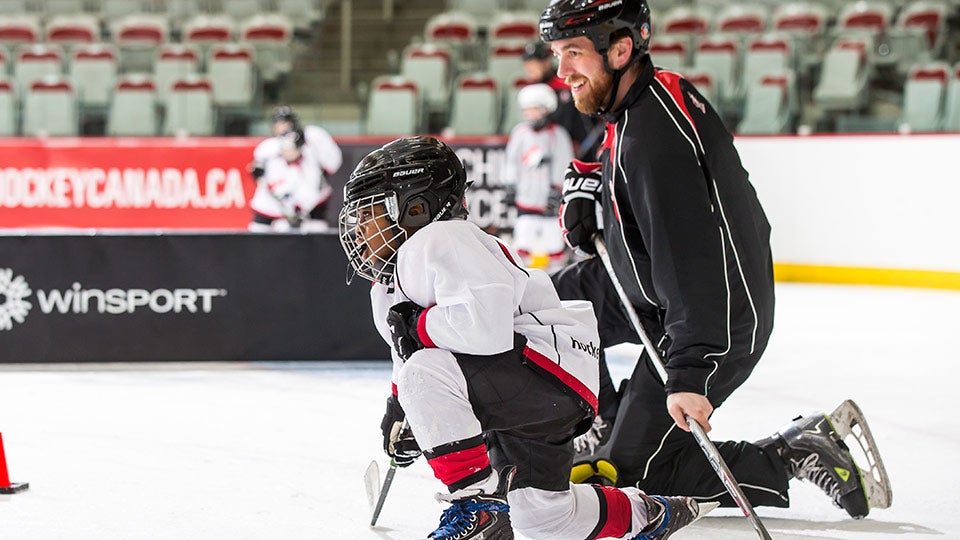Headlines
Subscribe to our NewsletterIntroduction to Novice Hockey Program

How a player gets their initial taste of hockey is crucial. The first few years of hockey must be a positive experience full of fun and excitement. That is the goal of the Hockey Canada Novice Program.
If the beginner has fun, develops basic skills and builds confidence, there is a better chance they will go on to enjoy hockey for a lifetime. But if a young player has an unhappy, unrewarding experience, they may quit at an early age and never discover the real joy of Canada's game. Every young player should have the opportunity to enjoy hockey for life!
Almost all local minor hockey associations organize house leagues and/or representative teams. But more and more minor hockey associations are also delivering age-appropriate programming. It is obvious that unprepared young players who are put directly into playing the adult version of the game are at a distinct disadvantage to youngsters who have had the benefits of experiencing progressive skill development.
The goal of Hockey Canada is to see the day when every youngster across Canada getting started in hockey will have the opportunity to participate in and benefit from a program designed to meet their specific needs. One that ensures progressive skill development through well-delivered practice sessions and age-appropriate game play in an environment well-suited to their skill level.
A minor hockey association's programming at the Novice level will serve as the foundation upon which the entire minor hockey association is built. Youngsters at every level in minor hockey benefit from getting the ‘right start’ in the game. Programming at the Novice level is a crucial piece in building the skills of house league and rep team players alike.
More than 30 years ago, Hockey Canada developed the Initiation Program to ensure a fun, safe and positive hockey experience. It served as a structured, learn-to-play program designed to introduce beginners to basic skills. It also enabled young players to build a solid skill base and become contributing members of a team effort, develop self-confidence and experience a sense of personal achievement – goals achieved in an atmosphere of fun and fair play.
Dating back to 1995, Hockey Canada passed a motion requiring the Initiation Program to be implemented by every minor hockey association across the country and to change their constitution/bylaws to reflect the creation of a new division in hockey.
(My son) seemed to catch on to what he needed to do (to) get the puck more, get himself open and positioned to take a pass, give a pass, take more shots on net.””
– Alberta hockey mom’s observations on her son’s experience with half-ice games
About the Initiation and Novice Program
- Programming should be delivered through a progressive learn-to-play teaching curriculum that spans the five- to eight-year-old age group.
- Children learn best through participating in practice drills and sessions as well as informal and modified games such as shinny, freeze tag and obstacle courses.
- The program consists of two levels of instruction, designed specifically for young hockey players. Each level consists of a series of practice plans (lesson plans) that follow a defined path of progressions.
- The skills of skating, puck control, passing and shooting are introduced and refined in a progressive ‘one step at a time’ manner.
- Although the emphasis is on fun and skill development, hockey at these ages should also allow youngsters to experience fitness, fair play and cooperation.
- To ensure a positive experience for the children, a coaching clinic has been designed for the on-ice coaches that focuses on communication, teaching skills, leadership, skill analysis, lesson organization, and safety and risk management.
Learning the basic skills at a young age will set the foundation for everything a player will accomplish in the game of hockey.”
– Corey McNabb,
Director, Hockey Development Programs
Hockey Canada




